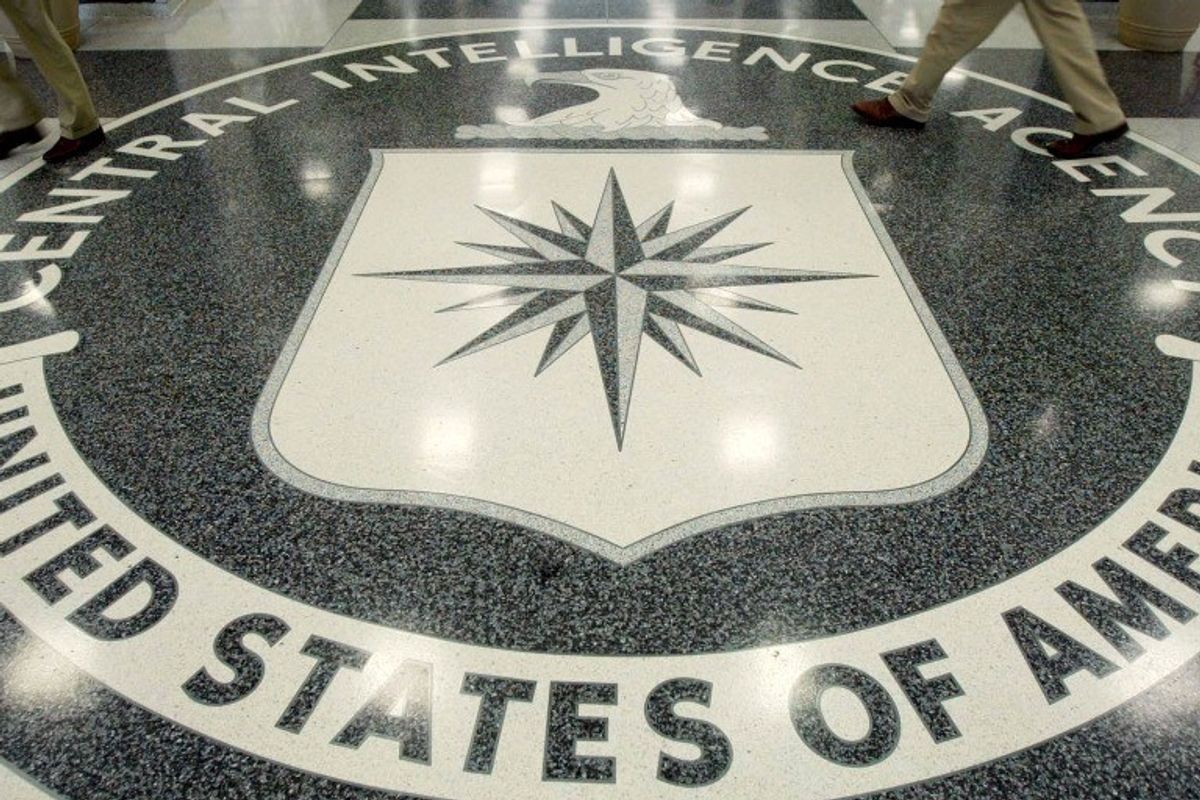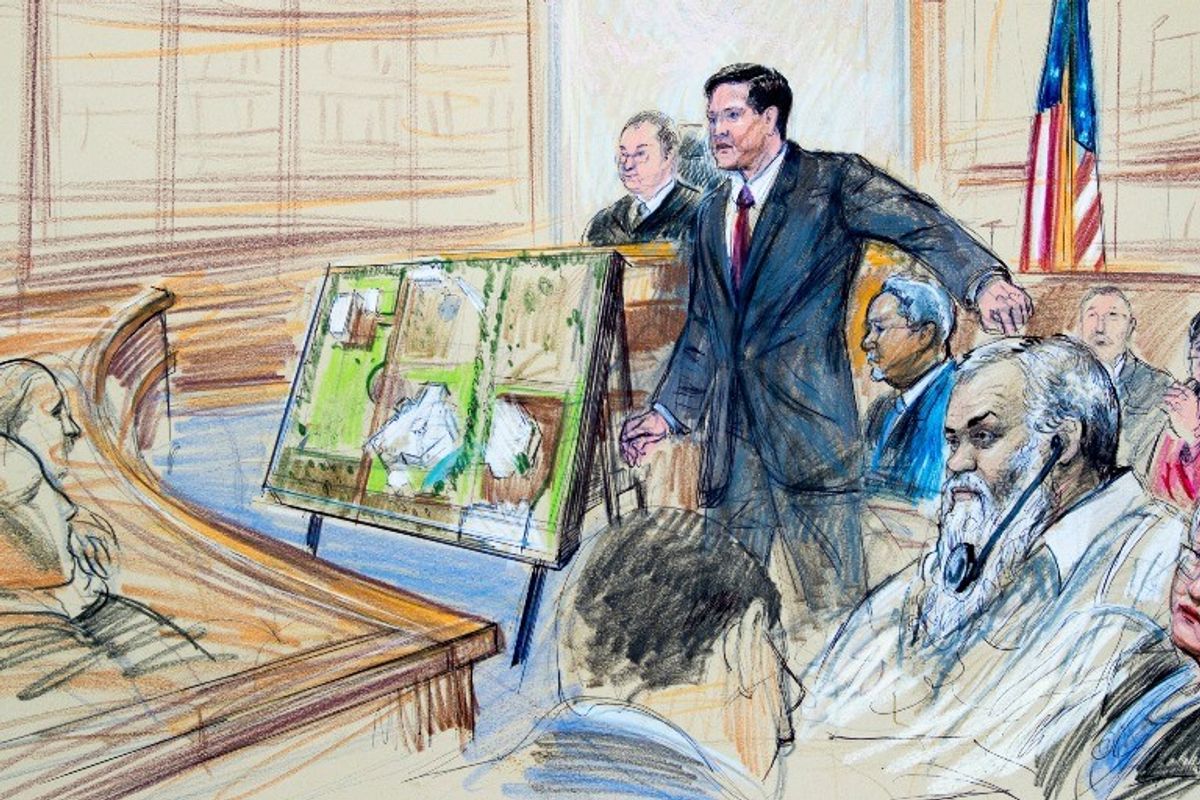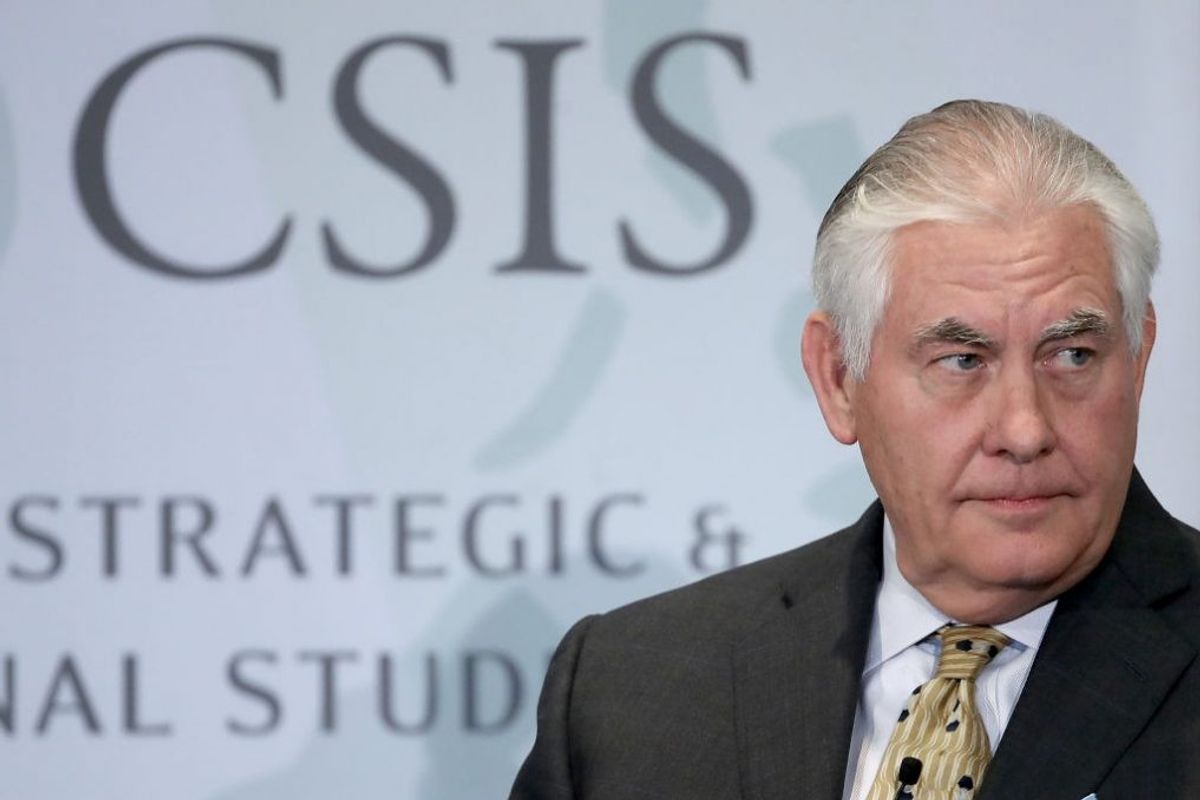The Cipher Brief spoke with Kevin Hulbert, a former senior intelligence officer in the CIA’s Directorate of Operations, to get his thoughts on embassy security three years after the Benghazi attacks. Kevin consults on a variety of international and security issues and served multiple overseas tours as CIA Chief of Station and Deputy Chief of Station.
The Cipher Brief: Is U.S. Embassy security where it should be in hot spots around the world three years after Benghazi?
Kevin Hulbert: Probably not. However, you have to remember that perfect security doesn’t exist and improving security at U.S. diplomatic facilities has always been more of a journey than a destination. The good news is that we are moving in the right direction. The bad news is that the world is moving too, and lately, it seems to be moving in the wrong direction.
Unfortunately, deteriorating security situations sometimes move more quickly than we do.
The 1985 report by retired Admiral Bobby Ray Inman on the security of U.S. diplomatic facilities overseas (“Report of the Secretary of State’s Advisory Panel on Overseas Security,” otherwise known as “The Inman Report”) makes note of the “unusual security challenges (the State Department) now faces to fulfill its security responsibilities in the coming decade.”
Thirty years ago, the Inman Report recognized that improving embassy security would not be easy or quick. Thirty years later, we face an even broader mix of “unusual security challenges” than we ever imagined. The bottom line is that things are moving in the right direction, albeit probably not as quickly as hoped in 1985.
TCB: Does the U.S. need to take a more risk-based approach when it comes to diplomacy?
KH: The level of risk we should be willing to take at our overseas outposts should be in direct proportion to the importance of the mission that the embassy or consulate supports. If our facility is a remote posting in a country where we have few national interests and where we have little in the way of a productive bilateral relationship, the decision to close that facility in the face of a heightened threat is relatively straightforward.
If the facility, however, supported a robust bilateral relationship where U.S. interests would suffer greatly by our departure, every reasonable effort should be made to keep the embassy open while taking necessary steps to mitigate the risk to our employees to include tweaking physical security, sending dependents home, and moving to essential staffing only.
As the security environment changes in any given country, it is important to be aware of changes to the security landscape and to quickly adjust our posture and the tactics, techniques, and procedures (TTPs) that we employ to keep our people safe.
TCB: Understanding that an embassy or a consulate will never be fully secure, what do you think is an acceptable level of risk in this day and age?
KH: There will always be risks associated with sending our diplomats and their families overseas. As such, we are continually making judgments as to what is an acceptable level of risk and we routinely update TTPS in the face of new threat information.
Sometimes, despite all the precautions we take, the worst happens. When our people come home in body bags, there is always the feeling that we got the calculus wrong and something has to change. Post Benghazi, the pendulum has probably swung too far in the direction of safety at all costs.
When I was recently in Pakistan, always a dangerous place, the first question I got from a visiting congressional delegation of four US Senators was, “How can you assure us that Peshawar (consulate) is not going to be another Benghazi?” I think they were less than pleased with my answer that I couldn’t assure them of this, but that I saw the two situations as very different.
We probably too quickly evacuate embassies and consulates in troubled areas (Yemen, Libya, and Lahore for example) and that impacts our ability to do the job, whether it’s diplomacy, humanitarian aid, and intelligence. If the US gets the reputation as the country that cuts and runs at the first sign of trouble, we lose a lot of credibility with our friends and allies who we are asking to hold the line. We also lose some ability to work closely with these countries to improve their efforts on everything from human rights to fighting terrorism.
TCB: What role should the U.S. Ambassador play in determining the level of security at his/her embassy or consulate?
KH: As the President’s designated senior official in country, the Ambassador’s opinions on security are vitally important. That said, Ambassadors have a large staff that includes those who are almost always more knowledgeable than the Ambassador on physical security, terrorist threats, and the like, and the Ambassador would be very well-served to listen to the advice of experts. In fact, the U.S. State Department Diplomatic Security Service (DSS) was created as a result of recommendations made in the 1985 Inman Report, DSS plays a leading role in recommendations for the physical security of our facilities overseas.
For its part, CIA always reports any relevant threat information to DSS colleagues, and in almost all embassies and consulates, DSS reports to the Ambassador every day. On matters of safety and security, if the Ambassador ever disregarded (or failed to seek) the advice and counsel of his senior team in the embassy, then he would be making a mistake. In practice, every Ambassador with whom I’ve worked has always taken the advice of his team and if there is any unilateral decision making, it was always to adopt a more conservative security posture rather than to downplay any risks.
TCB: Help us better understand the role that (a) host nations and (b) private security contractors play in securing an embassy or consulate.
KH: The role of the host nation in providing security to our diplomatic facilities abroad cannot be overemphasized. In the case of Benghazi, this was the weakest link in the security of the facility. In extremis, there was no one to call, no host nation entity that would send in the cavalry, and so there was the mechanism for the attackers to stage a prolonged multi-hour assault that was unchallenged in any way by the local authorities. When there is doubt about the ability or willingness of the host nation to send in reinforcements and to disperse any crowd outside of the US Embassy or attacking it, then it is probably time for us to go. This was the situation that drove recent decisions to close the US Embassy in both Libya and Yemen. In both of these high threat situations, we had lost confidence in the ability of the locals to provide perimeter security for our facilities.
Private security contractors also play important roles in securing our embassies and consulates. In Iraq and Afghanistan, the role of western private contractors to secure our facilities and even to serve as protective details for embassy personnel and movements are well known. In other places there are often locally employed contractors (i.e., foreign nationals) who provide typical perimeter security functions like walking patrol, manning the gates, the control of visitor access, etc. Embassies worldwide employ these local security contractors as the first line of defense in guarding U.S. facilities.













